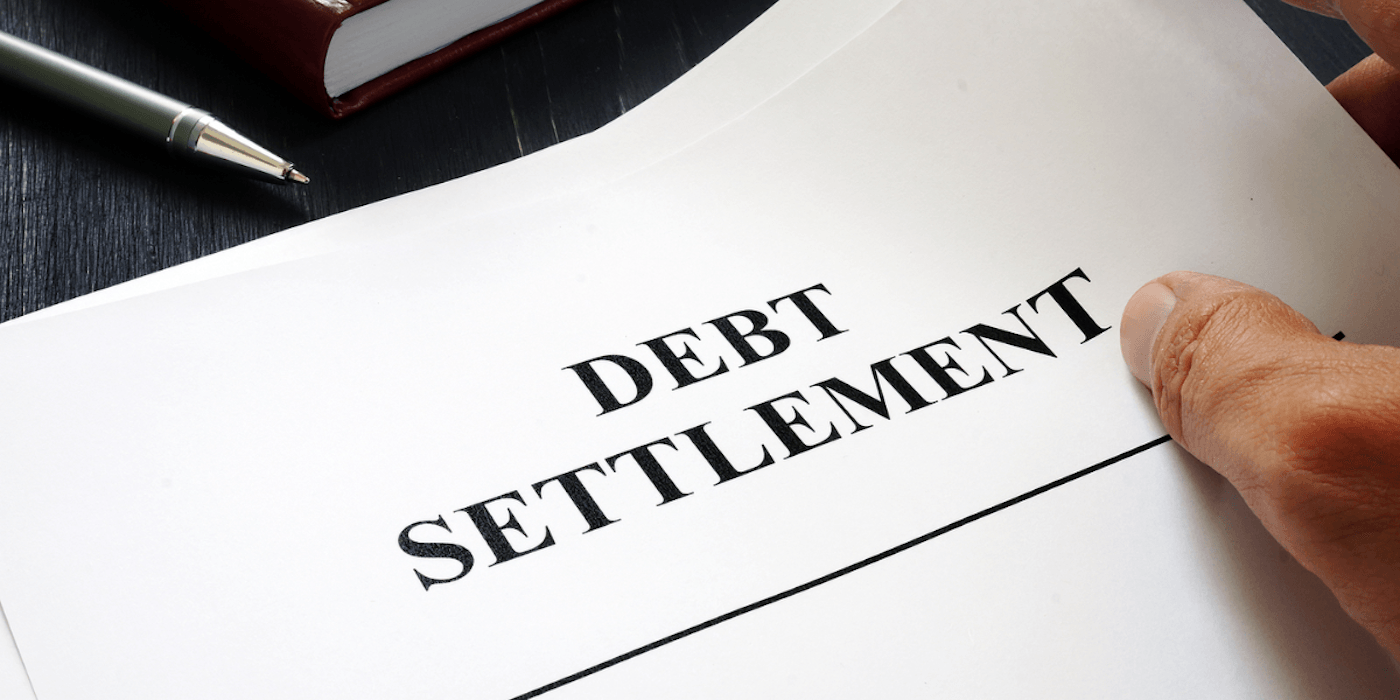A Guide To Understanding Debt Settlement

Debt settlement is a debt relief option that has become increasingly popular recently, particularly among Australians struggling with high debt levels. Debt settlement is when a debtor negotiates with their creditors to settle their debts for less than they owe. This can be an attractive option for those struggling to pay their debts and are at risk of falling further into debt or even bankruptcy.
Whether you are facing financial difficulties or want to learn more about debt settlement as a debt relief option, this post will provide the information you need to make informed decisions about your financial future.
What is Debt Settlement?

Debt settlement is a debt relief option where a debtor negotiates with their creditors to settle their debts for a lower amount than they owe. This typically involves working with a debt settlement company that will negotiate on the debtor's behalf to reach a settlement agreement with creditors. Debt settlement can be an attractive option for those struggling to pay their debts and are at risk of falling further into debt or even bankruptcy.
The difference between debt settlement and other debt-relief options
Debt settlement differs from debt-relief options, such as debt consolidation and bankruptcy. Debt consolidation involves taking out a loan to pay off multiple debts, which can simplify payments and potentially reduce interest rates. On the other hand, bankruptcy is a legal process where a debtor declares that they cannot pay their debts and seeks to have their debts discharged. Debt settlement, by contrast, involves negotiating with creditors to settle debts for a lower amount than what is owed without the need to take out a new loan or go through a legal process.
The potential benefits and drawbacks of debt settlement
Debt settlement as a debt relief option has potential benefits and drawbacks. Some potential benefits of debt settlement include the ability to settle debts for less than what is owed, the potential to avoid bankruptcy, and the potential to improve one's credit score by resolving debts. However, there are also potential drawbacks to debt settlement, including the potential impact on one's credit score, the risk of being sued by creditors, and the potential for debt settlement companies to charge high fees.
How Does Debt Settlement Work in Australia?

In Australia, debt settlement is regulated by the Australian Securities and Investments Commission (ASIC). The ASIC oversees the debt management industry and ensures that debt settlement companies comply with Australian laws and regulations. The ASIC also maintains a register of debt agreement administrators who are authorised to provide debt settlement services to Australians.
Debt settlement companies in Australia typically offer a range of services, including debt analysis, negotiation with creditors, and management of debt settlements. Some companies may also offer debt consolidation or management plans, financial education, and budgeting advice. When choosing a debt settlement company, it's crucial to ensure that they are licensed and registered with the ASIC and have a good reputation in the industry.
The typical debt settlement process
The typical process of debt settlement in Australia involves several steps. The first step is typically an initial consultation with a debt settlement company, where the debtor will provide information about their debts and financial situation. The debt settlement company will then assess the debtor's eligibility for debt settlement and recommend a course of action.
If debt settlement is deemed suitable, the debt settlement company will negotiate with the debtor's creditors to reach a settlement agreement. This may involve making a lump sum or a series of payments over time. Once a settlement agreement has been reached, the debtor will make payments to an escrow account managed by the debt settlement company, which will then distribute the funds to creditors as per the settlement agreement.
The debt settlement process can take several months to complete, depending on the complexity of the debts and the negotiations with creditors. Throughout the process, the debt settlement company will inform the debtor of progress and provide advice and support as needed.
Who Qualifies for Debt Settlement?

In Australia, only some are eligible for debt settlement. Certain criteria must be met to qualify for this debt relief option. The types of debt that can be settled include unsecured debts such as credit card debts, personal loans, and medical bills. Secured debts such as mortgages and car loans typically cannot be settled through debt settlement.
The minimum amount of debt required for debt settlement in Australia can vary depending on the debt settlement company. However, most companies will require a minimum debt of around $10,000. This is because debt settlement companies typically charge a percentage of the debt amount as a fee for their services, so it may not be cost-effective for clients with smaller debts to use debt settlement.
Client's suitability for debt settlement
When assessing a client's suitability for debt settlement, debt settlement companies will consider a range of factors. These may include the client's income, assets, and debt-to-income ratio. The debt-to-income ratio measures how much of a client's income is being used to service their debts. A high debt-to-income ratio can indicate that a client struggles to make their debt payments, which may make them a good candidate for debt settlement.
Other factors that may be considered when assessing a client's suitability for debt settlement include their debt type and overall financial situation. Debt settlement companies will typically assess a client's ability to make regular payments towards a debt settlement plan and their willingness to work with the debt settlement company to resolve their debts.
It's important to note that debt settlement may not be the best option for everyone struggling with debt. While it can be an effective way to resolve debts for some, it can also negatively impact a client's credit score and may not be suitable for those with significant assets or high levels of secured debt. It's always important to seek professional advice and consider all debt relief options before making any decisions.

Choosing a reputable and trustworthy debt settlement company is essential in debt settlement. Here are some tips to help you find the right debt settlement company for your needs:
Check credentials and reputation
Ensure the debt settlement company you are considering is licensed and registered with the ASIC. You can also check their reputation by reading reviews from previous clients and checking for any complaints with the Australian Financial Complaints Authority (AFCA).
Compare fees and services
Debt settlement companies typically charge a percentage of the total debt as a service fee. Compare the fees and services of several debt settlement companies to find the best option for your needs.
Read client reviews
Reading reviews from previous clients can give you an idea of the level of service and success rates of a debt settlement company. Look for reviews from clients who had similar debt situations to yours.
Some red flags to watch out for
While there are many reputable debt settlement companies in Australia, it's important to be aware of common scams and fraudulent practices in the debt settlement industry. Some red flags to watch out for include the following:
- Upfront fees: Legitimate debt settlement companies will typically only charge fees after successfully negotiating a settlement on your behalf. Be wary of companies that require upfront fees or payment before they have provided any services.
- Guarantees: No debt settlement company can guarantee a specific outcome for your debt settlement. Be wary of companies that promise to settle your debts for a certain percentage or within a certain timeframe.
- High-pressure sales tactics: Some debt settlement companies may use them to convince you to sign up for their services. Take your time and consider all debt relief options before making any decisions.
What to Expect During Debt Settlement

Debt settlement is a process that involves negotiating with creditors to settle outstanding debts for less than the full amount owed. Here are the typical steps involved in the debt settlement process:
#1: Consultation
The first step in the debt settlement process is to consult with a debt settlement company. During this initial consultation, the company will evaluate your financial situation and determine if debt settlement is viable for you.
#2: Escrow account
If you decide to proceed with debt settlement, the debt settlement company will set up an escrow account in your name. You will then begin making monthly payments into this account.
#3: Negotiations
Once your escrow account has sufficient funds, the debt settlement company will begin negotiating with your creditors on your behalf. They will try negotiating a settlement for less than the total amount owed.
#4: Settlement agreement
If a settlement is reached, the debt settlement company will provide you with a settlement agreement to review and sign. This agreement will outline the settlement terms, including the amount to be paid and other conditions.
#5: Payment
Once the settlement agreement is signed, you will make a lump sum payment to your creditor using the funds in your escrow account. This payment will satisfy the debt in full.
Potential Risks and Challenges of Debt Settlement

Debt settlement can be risky, and there are some potential risks and challenges to consider. It is important to consider these factors before deciding if debt settlement is the right option for you. These include:
- Damage to your credit score: Debt settlement can have a negative impact on your credit score, as it involves not paying the full amount owed on your debts. However, the effect on your credit score may be less severe than if you were to file for bankruptcy.
- Legal action: Creditors may take legal action against you if you fail to pay your debts. This can include wage garnishment or even asset seizure.
- Fees: Debt settlement companies typically charge fees for their services. Ensure you understand these fees and how they will be paid before signing up for debt settlement.
Conclusion
In conclusion, debt settlement can be a viable debt relief option for Australians struggling with debt. It involves negotiating with creditors to settle outstanding debts for less than the total amount owed. However, it is crucial to consider the potential risks and challenges, such as damage to your credit score and legal action from creditors.
Before choosing debt settlement, it is recommended that readers seek professional advice from a financial counselor or debt settlement company. It is also essential to compare different debt relief options and consider your financial situation before deciding. By taking these steps, you can make an informed decision and take control of your debt.
If you’re looking for debt consolidation to help clear your debts at a lower interest rate, check out Driva’s loan options. Find your perfect loan match in minutes.




